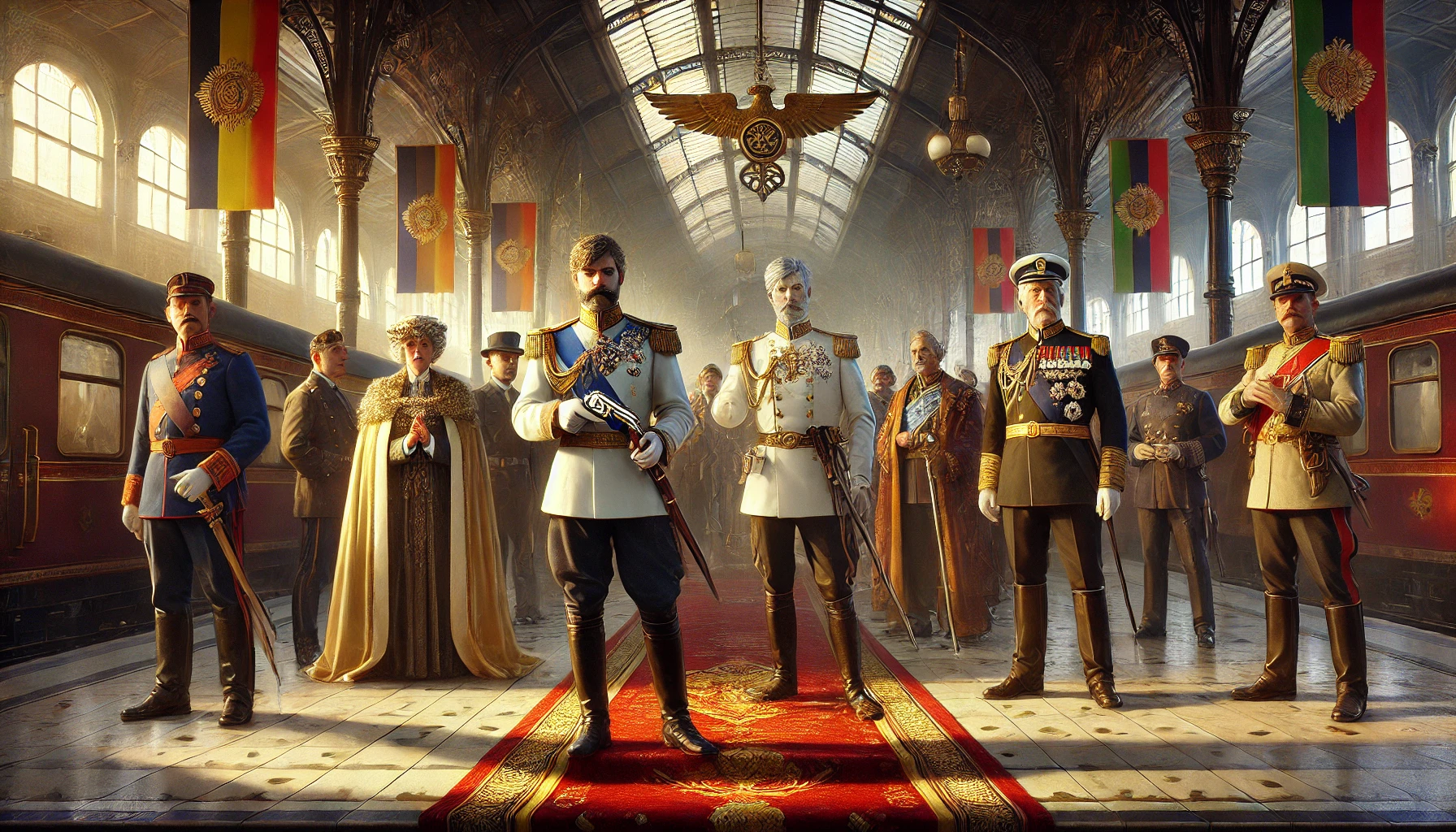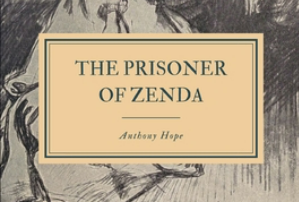Chapter 3 — A Merry Evening with a Distant Relative
byChapter 3 – A Merry Evening with a Distant Relative begins with Rudolf Rassendyll entering a new chapter of his travels with a seemingly ordinary offer of hospitality. Johann, a servant affiliated with Duke Michael, provides Rudolf with temporary accommodation when his original lodgings fall through. Seizing the chance to explore the landscape on foot, Rudolf meanders through the forest toward the railway, finding comfort in nature’s quiet rhythm. The scene feels untouched by politics, status, or intrigue—a momentary escape from structure. Leaning against a tree, lulled by the woodland stillness, he drifts into a nap, unaware of how dramatically his path is about to shift. This peaceful interlude becomes a turning point that will upend his entire journey.
Rudolf’s sleep is cut short by the startled voices of two men who find his resemblance to the King nothing short of extraordinary. Colonel Sapt and Fritz von Tarlenheim, members of the royal circle, are stunned by what appears to be a living mirror of their sovereign. Their reactions, a mix of disbelief and amusement, lead to an unexpected connection. Before long, the real King of Ruritania arrives, and his reaction mirrors theirs—pure astonishment mixed with curiosity. The resemblance is undeniable, down to the features, height, and demeanor. It is in this moment that fate quietly draws its first thread between two men from vastly different worlds.
The King, clearly amused by the strange coincidence, extends a warm invitation for dinner at a nearby hunting lodge. Rudolf, caught between politeness and intrigue, agrees. The journey to the lodge through thick woods feels symbolic—a crossing from the ordinary into the extraordinary. Once there, the evening quickly turns spirited. The King shows himself to be gregarious and generous, brushing off responsibilities and urging his guests to relax. The meal is hearty and paired with flowing wine, setting a tone of cheer and loosened formality. Stories and laughter fill the room, and a sense of kinship begins to take shape.
As the night deepens, the shared lineage between Rudolf and the King is discussed with increasing warmth. Though distant relatives by ancestry, their connection grows stronger with every toast. The atmosphere is both light and laced with irony. There’s talk of politics and duty, yet none take it too seriously in the moment. The King’s easy charm conceals the political tension simmering just beyond the walls. Still, the sense of freedom in that dinner—freedom from expectation, titles, and rivalry—makes the evening feel suspended in time. Rudolf begins to realize that his role as a mere traveler is already changing.
The wine served at the climax of their evening comes from Duke Michael, the King’s half-brother, and is introduced as a goodwill offering. This gesture feels oddly placed, considering Michael’s known ambition for the throne. Yet the King, ever nonchalant, dismisses any suspicion with a grin. He trusts in appearances and tradition, believing himself untouchable by treachery. Rudolf notes this with a trace of unease, sensing the potential danger that may lie hidden beneath the royal bravado. The bottle becomes more than wine—it becomes a symbol of disguised intentions, one that foreshadows the trouble ahead. It’s a subtle, brilliant stroke of irony buried in the merriment.
The significance of this chapter lies not just in the unexpected encounter, but in the layered themes it introduces. Fate, chance, and identity are set into motion by what should have been a quiet dinner. In literature and history alike, moments of historical weight are often born from casual beginnings. Here, a stranger becomes a central figure in a national crisis, not through conquest or ambition, but simply by being present and looking the part. The wine, the laughter, and the trust between strangers reveal a deeper truth—that power often rests on perception, not fact. The King’s lighthearted dismissal of threats masks a vulnerability his enemies are eager to exploit.
Rudolf’s experience during this dinner forces him to see royalty not as unreachable glamour, but as a collection of flawed decisions and fragile alliances. It’s a moment of awakening without the weight of responsibility—yet. His curiosity, however, has been sparked, and his sense of honor begins to stir. Though no grand plan has yet formed, this night lays the emotional groundwork for what’s to come. The mix of revelry and political subtext offers readers a textured view of court life. Behind the fine wines and charming conversation, alliances shift quietly and peril grows in plain sight.
The forest lodge, far removed from Strelsau’s grandeur, becomes the birthplace of one of Ruritania’s greatest political mysteries. Rudolf’s resemblance to the King will soon demand more than casual acknowledgment—it will require sacrifice, cunning, and courage. Readers begin to sense that this is more than coincidence; it’s the prelude to something historic. The King’s carefree spirit, so entertaining during dinner, now reads as tragic foreshadowing. This seemingly “merry” evening begins to carry the weight of destiny. The stage is set not just for impersonation, but for a transformation—one that will challenge the very idea of who is fit to rule and what loyalty truly demands.


